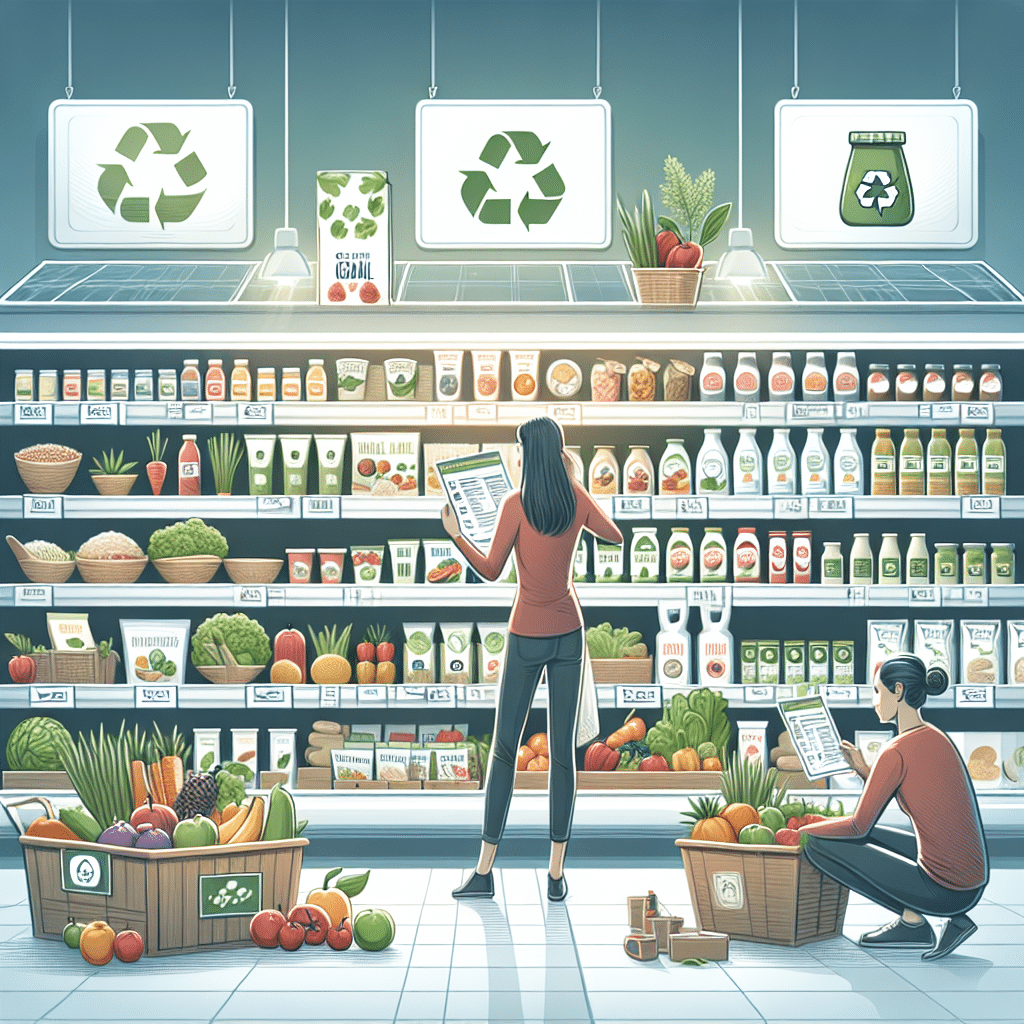Sustainable Eating: The Clean Label Approach
-
Table of Contents
- Sustainable Eating: Embracing the Clean Label Approach
- Understanding Clean Label and Sustainable Eating
- The Benefits of a Clean Label Diet
- Challenges in Adopting Clean Label Practices
- Real-World Examples and Case Studies
- How to Incorporate Clean Label Practices into Your Diet
- Conclusion: The Future of Food is Clean and Sustainable
- ETprotein: Your Partner in Clean Label Plant Proteins
Sustainable Eating: Embracing the Clean Label Approach

In recent years, the concept of sustainable eating has gained significant traction among consumers who are increasingly concerned about the environmental impact of their food choices. The clean label approach has emerged as a key trend within this movement, focusing on transparency, natural ingredients, and minimal processing. This article delves into the principles of sustainable eating through the lens of the clean label approach, exploring its benefits, challenges, and real-world applications.
Understanding Clean Label and Sustainable Eating
The clean label movement is not just a trend; it’s a response to a growing demand for food that is understandable, ethical, and environmentally friendly. Clean label products are typically free from artificial colors, flavors, preservatives, and other additives that consumers find unnecessary or undesirable. Sustainable eating, on the other hand, emphasizes the importance of choosing foods that are not only healthy for the individual but also for the planet.
When combined, these two concepts encourage consumers to select foods that are:
- Minimally processed
- Free from synthetic ingredients
- Sourced from environmentally responsible producers
- Supportive of local economies
- Conducive to animal welfare
The Benefits of a Clean Label Diet
Adopting a clean label diet offers numerous advantages for both personal health and the environment. Here are some of the key benefits:
- Improved Health: Clean label products often contain fewer additives and are less processed, which can lead to a more nutrient-dense diet.
- Environmental Sustainability: By choosing products with simple, natural ingredients, consumers can reduce their ecological footprint, as these products generally require less energy and resources to produce.
- Support for Local Farmers: Clean label products often source ingredients from local suppliers, which helps to sustain local agriculture and reduce transportation emissions.
- Animal Welfare: Many clean label brands prioritize ethical treatment of animals, opting for free-range or pasture-raised meat and dairy products.
Challenges in Adopting Clean Label Practices
While the benefits are clear, there are several challenges consumers face when trying to adopt clean label practices:
- Cost: Clean label products can be more expensive due to higher production costs and quality ingredients.
- Accessibility: Not everyone has easy access to stores that carry a wide range of clean label options.
- Misinformation: The lack of a standardized definition for “clean label” can lead to confusion and misleading claims.
- Preservation: Without preservatives, some clean label products may have a shorter shelf life, leading to potential food waste.
Real-World Examples and Case Studies
Many companies have successfully integrated the clean label approach into their business models. For instance, brands like Whole Foods Market have set high standards for ingredient transparency and quality, while startups like Beyond Meat have innovated in the plant-based protein space to offer sustainable meat alternatives with simple ingredient lists.
Statistics show that the clean label trend is more than just a passing fad. According to a Nielsen report, sales of products with clean label attributes have outpaced total store sales, indicating a strong consumer preference for these types of products.
How to Incorporate Clean Label Practices into Your Diet
Here are some practical tips for those looking to embrace the clean label approach:
- Read Labels: Look for short ingredient lists with recognizable items.
- Shop Local: Purchase from local farmers’ markets or join a community-supported agriculture (CSA) program.
- Choose Organic: Opt for organic products when possible to avoid synthetic pesticides and fertilizers.
- Prepare Meals at Home: Cooking from scratch allows you to control what goes into your food.
Conclusion: The Future of Food is Clean and Sustainable
The clean label approach to sustainable eating is more than a dietary choice; it’s a commitment to a healthier lifestyle and a healthier planet. By choosing foods that are minimally processed, free from unnecessary additives, and produced in an environmentally responsible manner, consumers can make a significant impact on their well-being and the world around them.
The key takeaways from this article are the importance of transparency in food labeling, the environmental and health benefits of clean label products, and the actionable steps consumers can take to incorporate these practices into their daily lives.
ETprotein: Your Partner in Clean Label Plant Proteins
If you’re looking to enhance your clean label diet with high-quality plant proteins, ETprotein offers a range of products that align with sustainable eating principles. Their organic and non-GMO protein powders, including rice, pea, and various seed proteins, are perfect for consumers seeking allergen-free, vegan-friendly options. ETprotein’s commitment to quality and sustainability makes them an ideal choice for those who care about what goes into their bodies and the impact their choices have on the environment.
About ETprotein:
ETprotein, a reputable plant protein vegan protein Chinese factory manufacturer and supplier, is renowned for producing, stocking, exporting, and delivering the highest quality organic bulk vegan protein and plant proteins. They include Organic rice protein, clear rice protein, pea protein, clear pea protein, watermelon seed protein, pumpkin seed protein, sunflower seed protein, mung bean protein, peanut protein etc. Their offerings, characterized by a neutral taste, non-GMO, allergen-free attributes, cater to a diverse range of industries. They serve nutraceutical, pharmaceutical, cosmeceutical, veterinary, as well as food and beverage finished product distributors, traders, and manufacturers across Europe, USA, Canada, Australia, Thailand, Japan, Korea, Brazil, and Chile, among others.
ETprotein specialization includes exporting and delivering tailor-made protein powder and finished nutritional supplements. Their extensive product range covers sectors like Food and Beverage, Sports Nutrition, Weight Management, Dietary Supplements, Health and Wellness Products, and Infant Formula, ensuring comprehensive solutions to meet all your protein needs.
As a trusted company by leading global food and beverage brands and Fortune 500 companies, ETprotein reinforces China’s reputation in the global arena. For more information or to sample their products, please contact them and email sales(at)ETprotein.com today.












